WomenInTech. Stories of growth, leadership and innovation from Azerbaijan
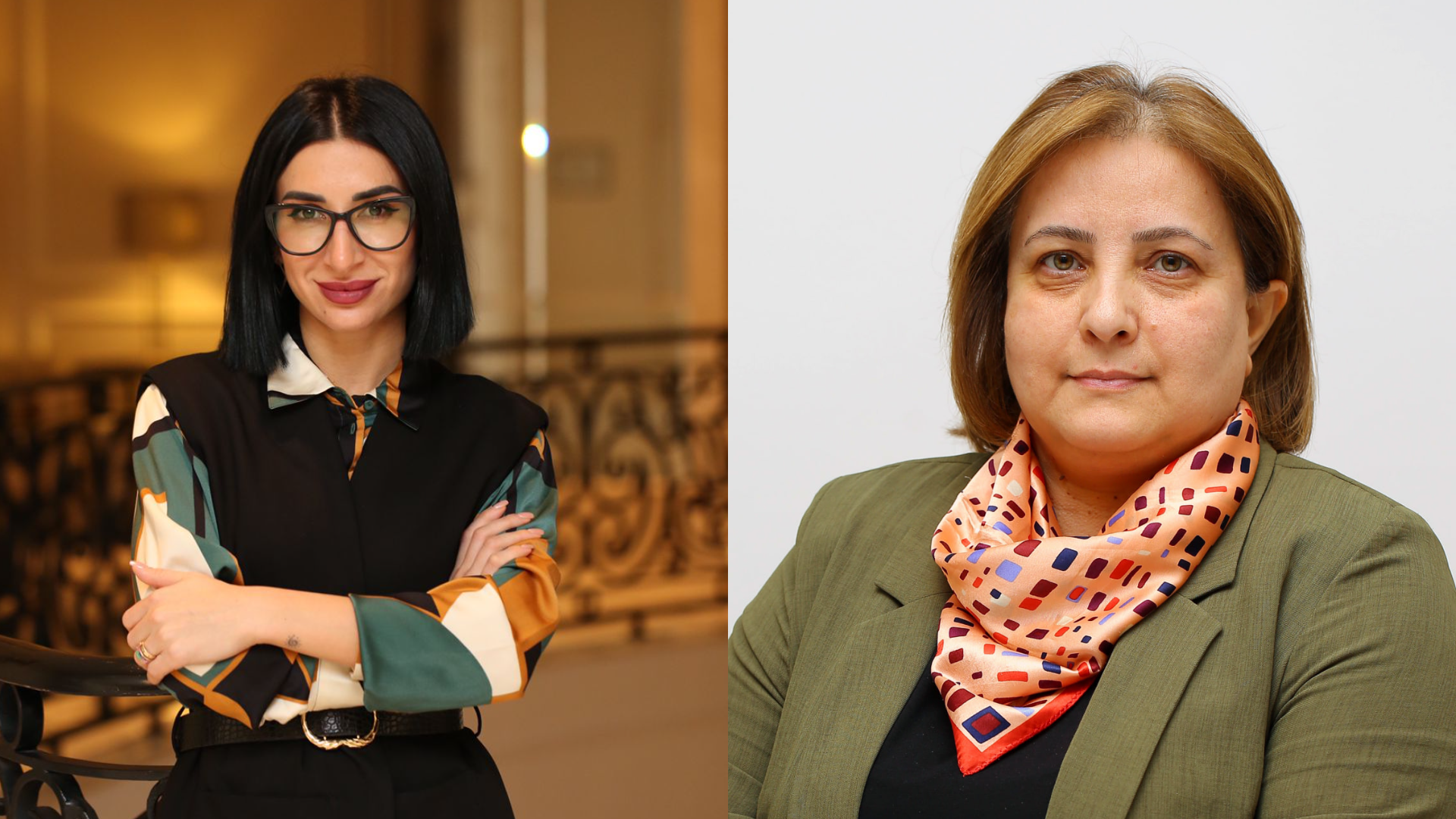
Meet the women breaking barriers and building the future of technology in Azerbaijan. Their journeys prove that confidence, resilience, and passion can redefine an entire industry.
Fidan Tofidi, Baku city, Director of Fintech and Innovation department at the Central Bank of the Republic of Azerbaijan, LinkedIn
About me
I am currently leading the Fintech and Innovation Department at the Central Bank of Azerbaijan. My team and I work on shaping the future of financial services — from open banking to digital identity solutions. At heart, I am someone who loves connecting policy, technology, and people to build systems that work better for everyone. If you had told me ten years ago that I would be driving fintech innovation in Azerbaijan, I would not have believed it. But I was always curious about technology and its potential to solve real-world problems — and here I am.
I actually started my career in the telecommunications industry, where I had my first exposure to innovation. That experience sparked my interest in how digital tools can transform industries and improve people’s lives. One of the most formative chapters of my journey was my time at the Barama Innovation and Entrepreneurship Center — one of the first hubs in Azerbaijan dedicated to startups and innovation. There, I led various initiatives to support early-stage entrepreneurs, built partnerships, and helped shape the ecosystem in its early stages of growth.
Following that, I joined PASHA Bank, where I was responsible for stakeholder engagement and the management of strategic projects. This unique experience gave me valuable insight into how large financial institutions approach transformation — from collaborating with fintech companies to aligning business goals with innovation efforts.
Over time, I moved into roles that blended tech, strategy, and public service — building bridges between corporate, government, and startup worlds. Eventually, that path led me to the Central Bank, where I now focus on connecting traditional finance with emerging technologies and driving forward our fintech and innovation agenda.
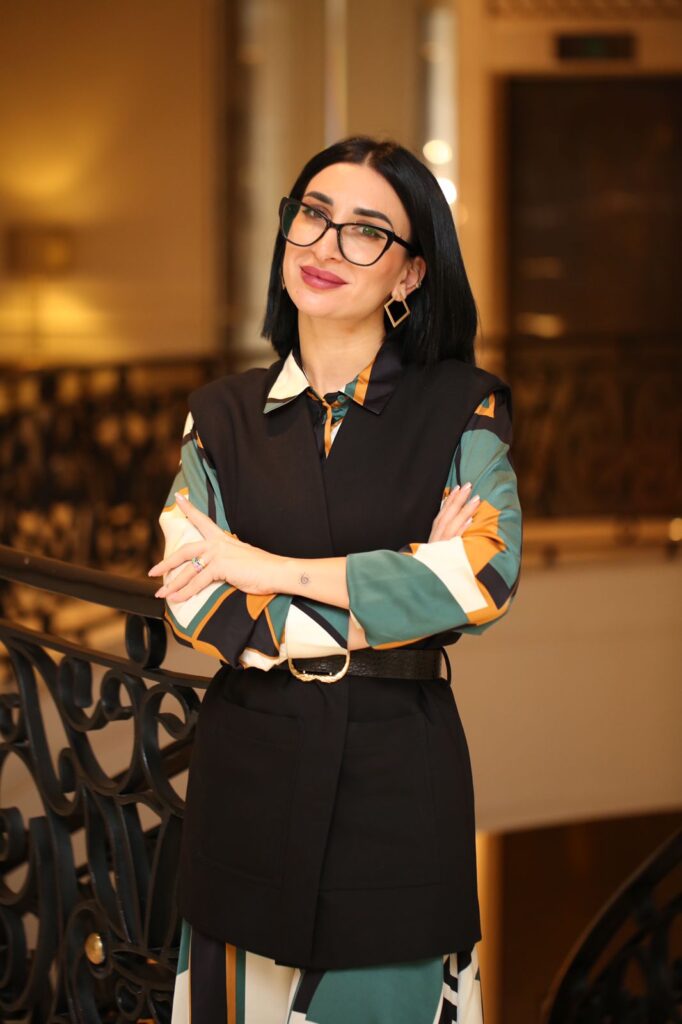
How I got into IT
Honestly, I did not follow the “traditional” IT route. I was not writing code at twelve or studying computer science. I found my path through curiosity — being involved in digital transformation processes and constantly asking, “How can this technology actually solve real problems for people, businesses, or institutions?” That mindset led me deeper into projects at the intersection of technology, strategy, and public interest.
Over time, I became increasingly involved in product development, regulatory technology, and financial innovation — not from a coding desk, but from a systems and impact perspective. I came to understand that in complex environments like financial regulation, a technical background is not always required to lead technology-driven change. What is essential is the ability to see the bigger picture, connect the dots between policy, infrastructure, and user needs — and to speak the language of both engineers and decision-makers.
Working within a regulatory institution, especially one with national responsibility like the Central Bank, presents a unique set of challenges and rewards. Here, innovation is not merely about speed or disruption — it is about building trust, ensuring stability, and modernizing without compromising the integrity of the system. This demands a deeply human-centered approach. I have found that this space welcomes individuals who can translate complexity into clarity, unite diverse stakeholders, and lead initiatives with both structure and vision.
And it is deeply fulfilling. You are not just launching another digital product — you are helping lay the foundation for how people and businesses will interact with money, identity, and trust in the future.
About stereotypes
As a woman holding leadership positions in tech and regulatory fields, I have faced various stereotypes along my career path. One of the common stereotypes I have seen is the assumption that if you are not technical — or if you are not “one of the guys” — you cannot lead innovation or understand the complexity of digital transformation.
When I transitioned from the private sector into the public sector, I noticed a sense of formality — and, often, rooms and decisions led almost entirely by men. At first, it felt like I had to “earn” my place more than others, to prove that I belonged. But over time, I have learned that you do not need to change who you are to be effective in these environments. You just need to show up prepared, deliver results, and build genuine relationships. That creates trust — and trust speaks louder than stereotypes.
Working in a male-dominated team has actually been a great experience. It taught me how to lead in a way that feels right for me — being clear, supportive and focused on the bigger goal. I did not try to copy anyone else’s style. Instead, I focused on building trust, working well with people and staying true to my values.
Yes, stereotypes exist — but I have never let them stop me. I believe the best way to break them is by showing what you are capable of. That is the message I would give to any woman: do not wait to be accepted — lead the way you are and show why your voice matters.

Obstacles for women in IT
One of the biggest challenges is being seen — not just being present, but truly recognized. I have worked with so many brilliant women who were doing incredible things behind the scenes, but their voices were not always heard, and their names were not always mentioned in the room where decisions were made. There is also the silent pressure we put on ourselves — to be perfect, to never make mistakes, to constantly prove we deserve our seat at the table. That pressure can be exhausting.
I remember one moment early in my public sector journey. I was invited to speak at a high-level meeting — a room full of senior leaders, all men, most with more experience than me. For a second, I doubted whether I belonged there. But then I spoke — clearly, confidently, sharing what I knew from months of hands-on work. After the meeting, one of the senior officials came up to me and said, “That was exactly what we needed to hear”. That moment stayed with me. It reminded me that preparation, clarity and showing up as yourself matter more than trying to meet someone else’s idea of what a leader should look like.
So yes, the challenges are real. But they are not walls — they are just moments we move through. And each time we do, we make it easier for the next woman to do the same.

Recommendations for those who are just starting their journey
My advice to women entering fintech or any male-dominated industry is to own your space and your voice. Do not wait for permission to contribute or feel like you have to prove yourself before being taken seriously. You belong at the table just as much as anyone else.
Do not wait to feel “ready”. Say yes, even when you are sixty percent confident — the remaining forty percent will come with experience. Be curious, ask thoughtful questions, and find people who are willing to guide you, not just manage you.
Early on, learn the industry inside and out — read, research, and stay curious. Knowledge is power, and it builds confidence.
Most importantly: do not compare your path to others. Careers are not linear — they are unpredictable and unique.
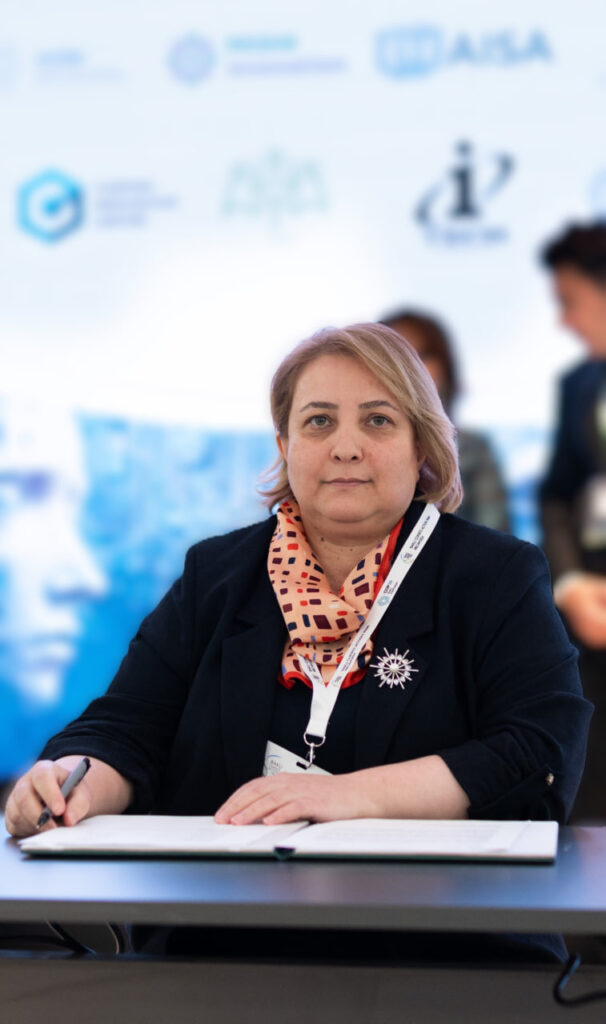
Ulduza Khalilova, Baku city, CEO, LinkedIn
About me
I am a digital innovation leader and advocate for inclusive, sustainable technology. I currently serve as the Director of Digital Umbrella LLC, where we develop advanced digital solutions for agriculture, sustainability, and climate resilience in Azerbaijan. Our platforms — including Yonca, Tapagro, and Detecterra — serve over 600 000 farmers by enabling data-driven, environmentally responsible farming practices.
At Digital Umbrella, we are also deeply committed to empowering rural communities through the development of digital skills. We provide hands-on training and capacity-building programs for farmers, rural youth, and women — helping them build confidence in using digital tools to improve livelihoods and resilience.
My educational background is in applied mathematics and digital development, which laid the foundation for my career at the intersection of governance, technology, and sustainability. Over the years, I have complemented this with ongoing learning in digital transformation, data analytics, and climate-smart agriculture.
In addition to leading Digital Umbrella, I serve as the National Expert for the World Summit Awards, WSA, promoting high-impact digital innovations from Azerbaijan. I am also an active member of Femmes Digitales — Women in Tech Azerbaijan, where, along with the brilliant women of IT in my country, I mentor and support women entering the technology field.
My work is driven by a strong belief that technology must serve people — and that progress is only meaningful when it is inclusive. My mission is to make technology a force for equity, opportunity, and sustainable development.
How I got into IT
My journey with technology began in an unexpected and unforgettable way. In 1987, as a young girl growing up in a mountain village, I encountered a «Corvette» educational computer — a product of the Soviet Union. It had a black screen and white font, and to me, it was pure magic. At the time, I was deeply immersed in science fiction literature, especially the works of Isaac Asimov, and seeing a real computer felt like stepping into one of his stories.
That early spark of curiosity led me to study Applied Mathematics at Baku State University, where I had the privilege of learning programming and optimization from some of the country’s leading experts.
But my path was not without hardship. In the 1990s, I lost my home and both parents and became a refugee in my own country due to the war. In those darkest moments, education and a passion for technology were the only anchors that kept me moving forward. They gave me a sense of purpose, resilience, and the belief that a better future was still possible.
Since then, my passion for computers and innovation has never faded — it has continuously driven me to explore emerging technologies and apply them to real-world challenges.
Professionally, my career has always centered on information systems and digital transformation. During my years in public service, I had the opportunity to both lead and contribute to key national projects focused on the digitalization of public services and the development of large-scale IT systems. As Deputy Head of the E-Government and Digital Innovations Department at the State Agency for Public Service and Social Innovations, I played a strategic role in many groundbreaking e-government initiatives.
Today, as the head of Digital Umbrella LLC, I continue this mission — applying technology to improve lives, particularly in the agricultural sector. Looking back, I am deeply grateful that a black-and-white screen in the late 1980s inspired a lifelong commitment to digital innovation and public impact.
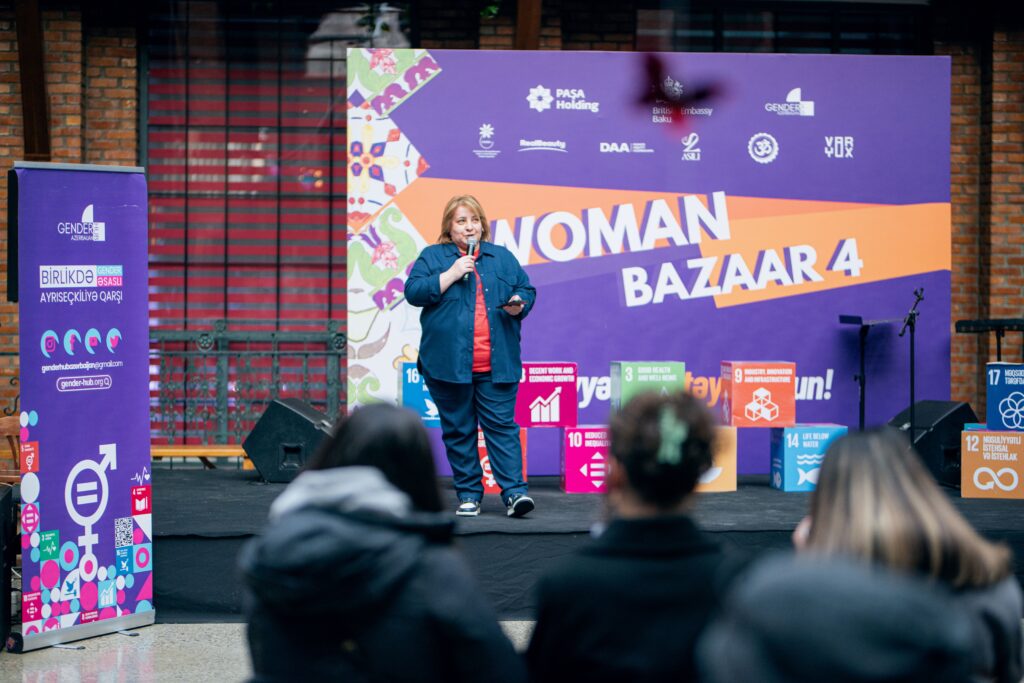
About stereotypes
We live in a patriarchal society, and unfortunately, even today, the idea of pursuing higher education — especially for daughters — can still be questioned or discouraged in some families. So you can imagine how unconventional it was for a woman to choose a career in the tech sector, particularly at the beginning of my journey.
I remember countless meetings where I was the only woman in the room — the only representative of the “second half of humanity,” as I sometimes call it. One moment that stands out clearly is when my manager promoted a male colleague “so I could spend more time with my family”.
As a woman in leadership, especially in the fields of technology and digital innovation, I have frequently encountered doubt and assumptions — about my technical knowledge, my strategic thinking, and even my right to be at the table. There were times when my expertise was dismissed or undervalued, and I had to work twice as hard to be taken seriously.
But I never let those experiences discourage me. Instead, I turned them into motivation. I focused on delivering measurable results and building digital systems that made a real impact. Over time, even the most skeptical voices fell silent — because impact speaks louder than bias.
It is not always easy, but I take pride in proving, again and again, that women do not just belong in tech — they lead it, innovate it, and transform it.
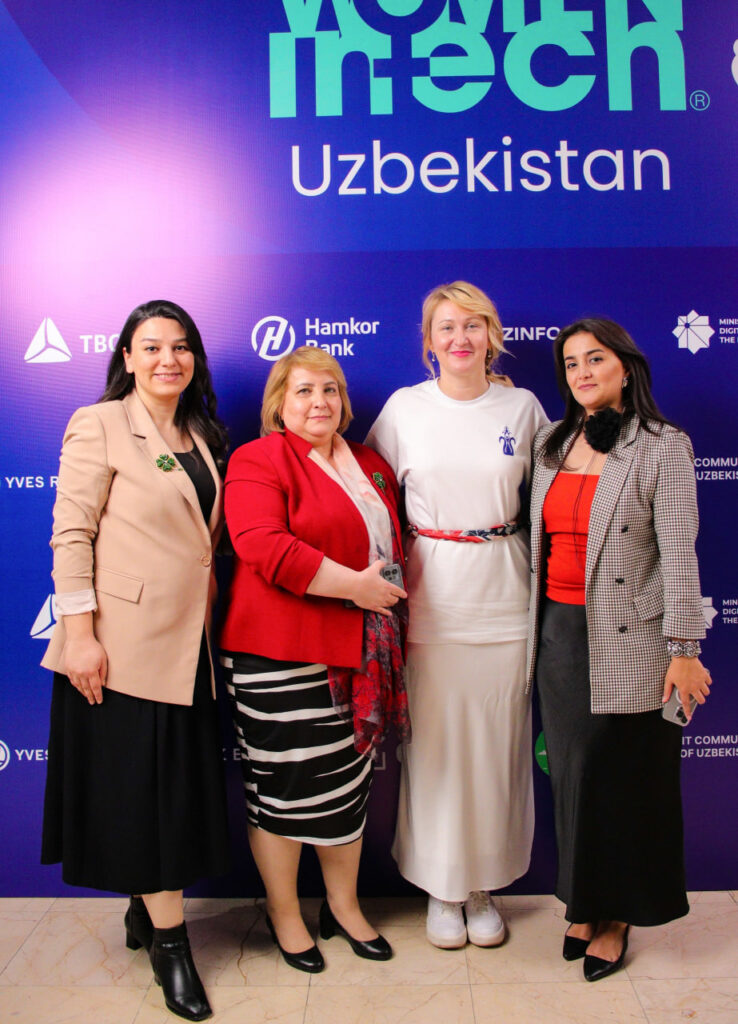
Obstacles for women in IT
One of the biggest challenges women face in IT is the lack of visible role models. When you do not see women in leadership or technical roles, it becomes harder to imagine yourself in those positions — it feels like an exception rather than the norm. That invisibility can discourage many women from aiming higher or even entering the field in the first place. That is why I believe it is so important to highlight and celebrate the success stories of women in tech — not just the global icons, but also the local leaders who are building solutions, leading teams, and shaping digital futures in their own contexts.
Another significant obstacle is the pressure to “choose” between career growth and personal life. There is still a deeply rooted societal expectation that women must sacrifice one for the other. This belief often results in slower career progression, missed opportunities, or even self-doubt. I have personally been told — more than once — that I should “slow down” or “focus on my family”. But I believe we should not have to choose. We need environments that respect both ambition and personal responsibilities — for women and men alike.
What helped me overcome these challenges was a combination of factors. First, I have been fortunate to have a supportive family who believed in my potential and never saw my career as a threat to my personal life. That trust gave me the strength to pursue leadership with confidence.
I have overcome obstacles by staying focused on impact, continuously learning, and building strong networks — especially with other women in tech. Over time, I have learned that we do not just need a seat at the table — we need to bring other women with us and make that table more inclusive for everyone.
Recommendations for those who are just starting their journey
Do not wait to be “ready” or “perfect” before taking the next step. Jump in, ask questions, and learn through experience. The tech world moves fast, so curiosity and adaptability are your greatest tools. Seek out mentors, stay true to your values, and believe that you belong — even when others hesitate to say it. Most importantly, do not just build a career — build impact.
